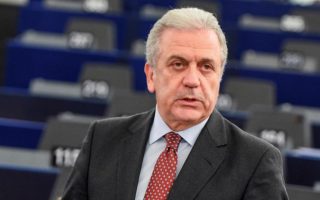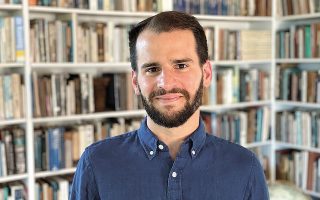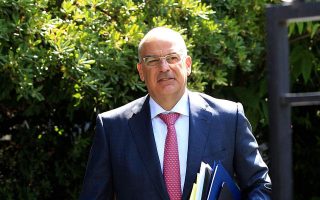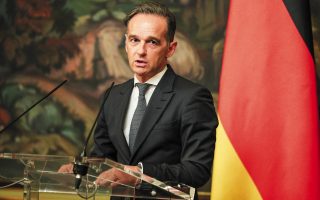Erdogan will not freeze his relationship with Russia
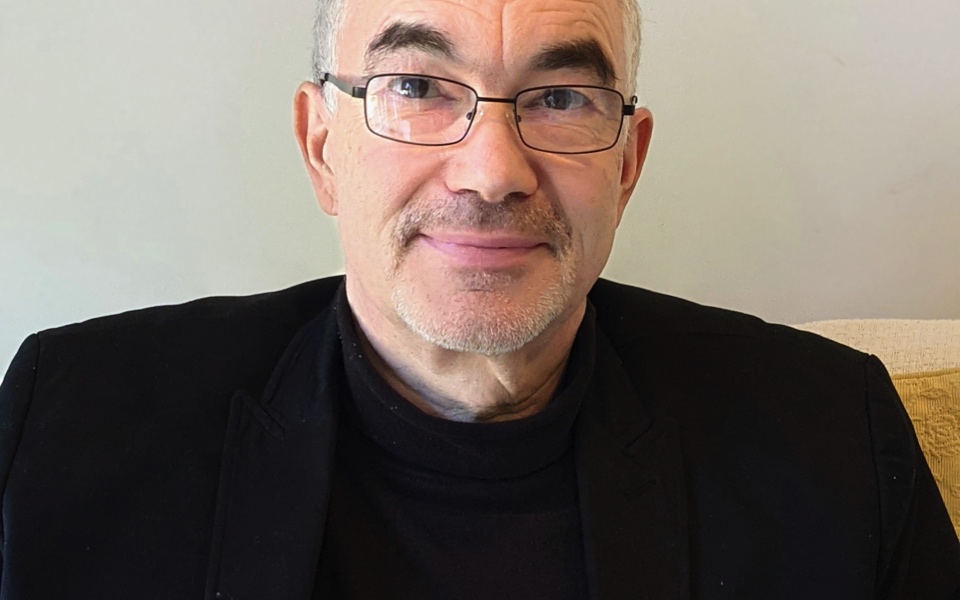
Eminent Turkish academic Kemal Kirisci has worked persistently for peaceful collaboration and friendship between Greece and Turkey. In the early 2000s, when he held the Jean Monnet Chair in European Integration at Bogazici University in Istanbul, he was involved in Turkey’s effort to become a member of the European Union while accepting the United Nations-backed plan for Cyprus reunification.
In 2013 he became director of the Center on the United States and Europe’s Turkey Project at the Brookings Institution in Washington, a position he held for seven years. Now a Brookings senior fellow, he is closely observing developments in Greek-Turkish relations and the new turn after the revival of exploratory talks last Monday.
Greece and Turkey have resumed exploratory talks after an almost five-year hiatus. Do you think a path toward the two countries agreeing on a commonly accepted “set of differences” to be referred to the International Court of Justice in The Hague actually exists or will the current exploratory discussions drag on for another 15 years?
I think it is a promising step as much as it may be a very preliminary as well as precarious step. The previous rounds, if I am not mistaken, started after the famous Helsinki agreement in December 1999 extending EU membership candidate status to Turkey. One of the requirements embedded in that agreement was that Greece and Turkey resolved their bilateral differences/conflicts with the option of eventually going to The Hague. Both sides agreed or preferred to resolve these differences bilaterally through dialogue. I have come across commentaries suggesting that this time these differences ought to be resolved through a legal process. However, my sense is that both sides may be reluctant to do that for domestic political reasons. The best outcome would be if these talks could establish the practice of, I won’t say learning, but consolidating to live with the “set of differences” you refer to. It is a tall order, especially at a time when the EU carrot is not there at all and instead there is a stick been brandished. But as Churchill said, “To jaw-jaw is always better than to war-war.”
How possible is it that President Recep Tayyip Erdogan will strike deals with more moderate parties in the runup to the 2023 presidential elections? Can he win again by ignoring the moderates?
Recent developments and meetings he is having with politicians coming from Milli Gorus (National Outlook) and efforts to peel off Meral Aksener, the leader of the IYI (Good Party), away from the opposition bloc, suggest he is exploring possibilities of replacing his current alliance partners with others. He recognizes that Turkey has serious economic and rule of law problems that need to be addressed, but at the same time he is also concerned about staying in power. The system that he has brought upon Turkey has, in a sense, an own-goal catch to it: You need to win 50% + 1 vote. Polls show how his approval ratings are slipping and the AKP’s performance in these polls is declining. Lastly, I have also heard that there are growing rumblings in the AKP ranks about his alliance partner. Hanging above his head is the good old Sword of Damocles – [the threat] that splinter parties from the AKP, Gelecek [Future Party, led by Ahmet Davutoglu] and DEVA [Democracy and Progress Party led by Ali Babacan], might attract a growing number of AKP diehard members unless he distances himself from his nationalist partner the MHP. If he can do this, this would significantly weaken an already weak opposition. It is a very Byzantine politics focus on preservation.
Joe Biden kept some distance from Erdogan when he was vice president, and it was during the Obama-Biden administration that, after the 2016 coup, there was some delay in the US expression of support for the Turkish President.
You’re right that there is a long-standing simmering grudge toward the US for not having stood behind Turkey when the coup attempt took place, a bit like Russia did. I did hear how there were those in the US and EU who chose to sit on the fence. My sense of it is that [the then secretary of state] John Kerry got himself caught off balance in Moscow when it happened. There was a failure to grasp the seriousness of a situation that was unfolding against a background of considerable bitterness in US-Turkish relations simmering from Erdogan’s visit to DC a few months earlier and then the position that Obama took during the Gezi Park protests. All this occurred against a background of reconciliation between Putin and Erdogan followed by Putin’s decisive move the extend his support to Erdogan as the coup attempt unfolded.
What would Erdogan ask of the US in return if he were to freeze his evolving relationship with Russia, as Washington is insisting that Ankara do?
I am afraid I don’t see Erdogan “freezing” his relations with Russia. This is a big challenge and huge train wreck around the corner. I don’t think Biden will blink either. It is a “chicken game” à la James Dean! I think we are at a major junction with respect to US-Turkish relations. This is also the case for Turkey’s relations with the “West” in general. I honestly think that will depend on how EU-Turkish relations unfold, especially also with Greece. Hence, the exploratory talks are much more than managing or resolving a “set of differences.”
